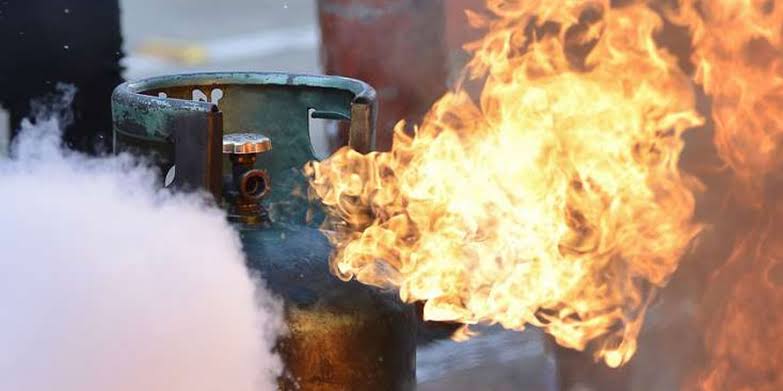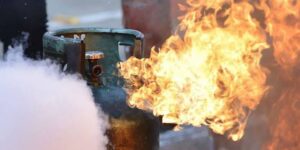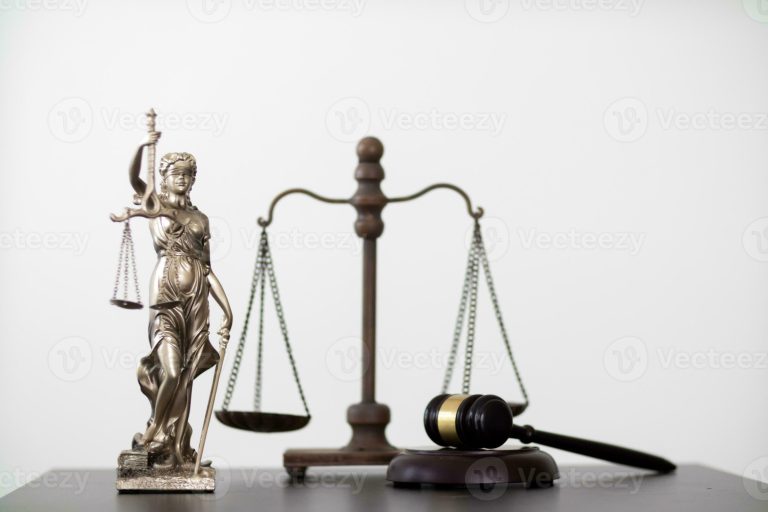
Signs to know your gas cylinder wants to explode
A gas cylinder explosion is a serious incident that can lead to catastrophic consequences. The force generated by such an explosion can cause significant damage to property and pose a grave threat to human life. It is imperative to exercise utmost caution when handling gas cylinders and adhere to strict safety protocols. Proper storage, regular inspections, and appropriate training are crucial in preventing accidents of this nature. Any signs of damage or malfunctioning should be reported immediately to ensure timely intervention and prevent potential disasters. Safety must always remain the top priority in order to mitigate the risks associated with gas cylinder explosions.
Liquefied petroleum gas (LPG) serves as a convenient energy source for millions of households, hotels, eateries, and various other uses. However, the dangers associated with a gas cylinder explosion due to improper handling are significant and should not be underestimated. Such an event can present serious safety hazards and catastrophic outcomes. It’s essential for everyone using LPG whether at home, in restaurants, hotels, or elsewhere to be aware of how to prevent explosions and respond effectively during emergencies. By understanding the causes and taking necessary precautions, we can ensure the safety of ourselves and those around us. to understand how to prevent explosions and react appropriately in case of an emergency. Let’s look into the causes of explosions and the steps we can take to avoid them, ensuring safety for ourselves and our loved ones.
A gas cylinder explosion can have catastrophic consequences, resulting in severe damage and potential loss of life. Immediate action and precautionary measures are crucial in order to prevent such incidents.
What Causes Gas Cylinder Explosions?
Consider the fire triangle: fuel, oxygen, and ignition. LPG serves as the fuel, while the air provides the oxygen. An explosion occurs when a spark or open flame ignites a gas leak, leading to a cylinder explosion. Here are some triggers of this dangerous chain reaction:
- Faulty connections or worn components can lead to leaks, allowing gas to escape and accumulate in an enclosed space.
- Storing cylinders near stoves, ovens, or in direct sunlight can cause dangerous pressure buildup.
- Dropping, bumping, or mishandling cylinders can damage the safety valve, resulting in an uncontrolled release of gas.
- Tampering with the valve cap or safety seal of a cylinder.
Safety Measures to Prevent Gas Cylinder Explosions
By Keeping to these safety measures, you can drastically reduce the likelihood of a gas cylinder explosion:
- Store cylinders upright in a cool, well-ventilated area, away from direct sunlight and heat sources.
2. Regularly inspect the cylinder and hose for leaks. Use the soap water method to check for leaks.
3. Use an ISI-marked (Bureau of Indian Standards) pressure regulator and hose. Replace them as recommended by the manufacturer.
4. Always buy LPG cylinders from authorized dealers who ensure proper certification and testing.
5. If you suspect a leak, immediately turn off the cylinder valve and open windows for ventilation. Do not use electrical switches, lighters, or cigarettes. Evacuate the area and contact your gas supplier.
6. Before turning on any appliance, perform a quick sniff test around the cylinder and connections. A gas odor indicates a leak.
7. Always turn off the gas supply at the cylinder valve when not in use, even for short periods.
8. Avoid using electrical appliances or open flames when changing connections or checking for leaks near the cylinder.

Responding to a Gas Cylinder Explosion
If you are ever faced with a potential gas cylinder explosion:
Evacuate: Leave the area immediately, ensuring everyone is safely out of harm’s way.
Alert Others: Warn neighbors to evacuate as well.
Call for Help: From a safe distance, call the fire department and your gas supplier.
Do Not Re-enter: Do not return to the building until emergency responders declare it is safe.






